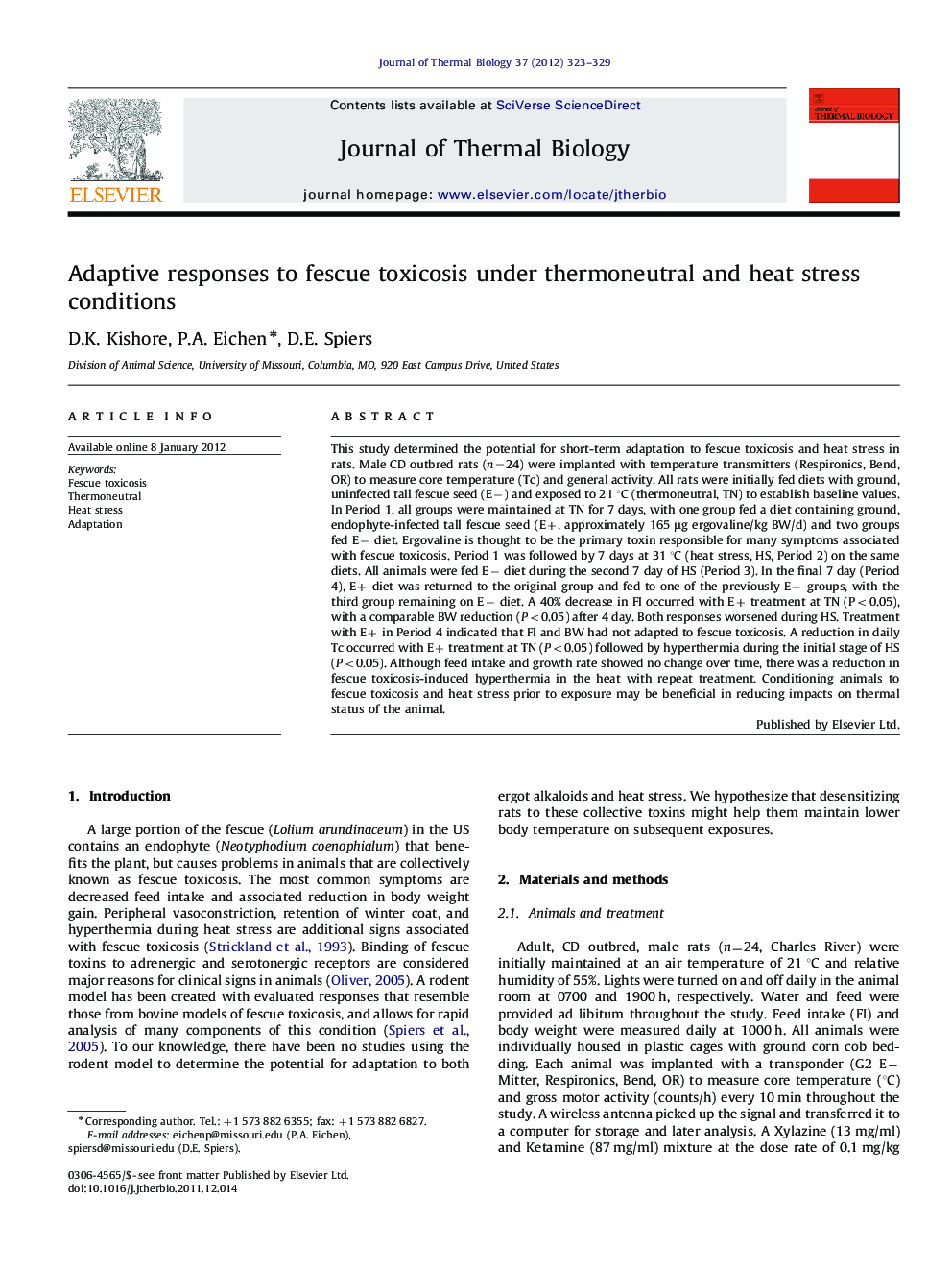| کد مقاله | کد نشریه | سال انتشار | مقاله انگلیسی | نسخه تمام متن |
|---|---|---|---|---|
| 2843297 | 1166085 | 2012 | 7 صفحه PDF | دانلود رایگان |

This study determined the potential for short-term adaptation to fescue toxicosis and heat stress in rats. Male CD outbred rats (n=24) were implanted with temperature transmitters (Respironics, Bend, OR) to measure core temperature (Tc) and general activity. All rats were initially fed diets with ground, uninfected tall fescue seed (E−) and exposed to 21 °C (thermoneutral, TN) to establish baseline values. In Period 1, all groups were maintained at TN for 7 days, with one group fed a diet containing ground, endophyte-infected tall fescue seed (E+, approximately 165 μg ergovaline/kg BW/d) and two groups fed E− diet. Ergovaline is thought to be the primary toxin responsible for many symptoms associated with fescue toxicosis. Period 1 was followed by 7 days at 31 °C (heat stress, HS, Period 2) on the same diets. All animals were fed E− diet during the second 7 day of HS (Period 3). In the final 7 day (Period 4), E+ diet was returned to the original group and fed to one of the previously E− groups, with the third group remaining on E− diet. A 40% decrease in FI occurred with E+ treatment at TN (P<0.05), with a comparable BW reduction (P<0.05) after 4 day. Both responses worsened during HS. Treatment with E+ in Period 4 indicated that FI and BW had not adapted to fescue toxicosis. A reduction in daily Tc occurred with E+ treatment at TN (P<0.05) followed by hyperthermia during the initial stage of HS (P<0.05). Although feed intake and growth rate showed no change over time, there was a reduction in fescue toxicosis-induced hyperthermia in the heat with repeat treatment. Conditioning animals to fescue toxicosis and heat stress prior to exposure may be beneficial in reducing impacts on thermal status of the animal.
► Feed intake and body weight gain does not adapt in rats experiencing fescue toxicosis during heat stress.
► There does appear to be adaptation of core body temperature over time, in rats exposed to these two stressors.
► Preconditioning animals to heat stress & fescue toxicosis may reduce the impact of these stressors.
Journal: Journal of Thermal Biology - Volume 37, Issue 4, July 2012, Pages 323–329